
From June 30 to July 27, 2025, the 3rd Fudan International Summer School on “Global Public Policy” was successfully held at Fudan University. Jointly organized by the LSE-Fudan Research Centre for Global Public Policy and Institute for Global Public Policy (IGPP), the summer school drew on Fudan’s strong academic resources in public policy and extensive global academic network. The program brought together distinguisshed faculty and outstanding students from around the world to offer courses on the themes of “Global Public Policy” and “China and the World.” Its curriculum reflected the latest theoretical and practical developments in the field, providing participants with an excellent opportunity to deepen professional knowledge, broaden international perspectives, and strengthen cross-cultural communication and leadership skills. Participants included undergraduates, graduate students, in-service professionals, and high school students from both domestic and international institutions.
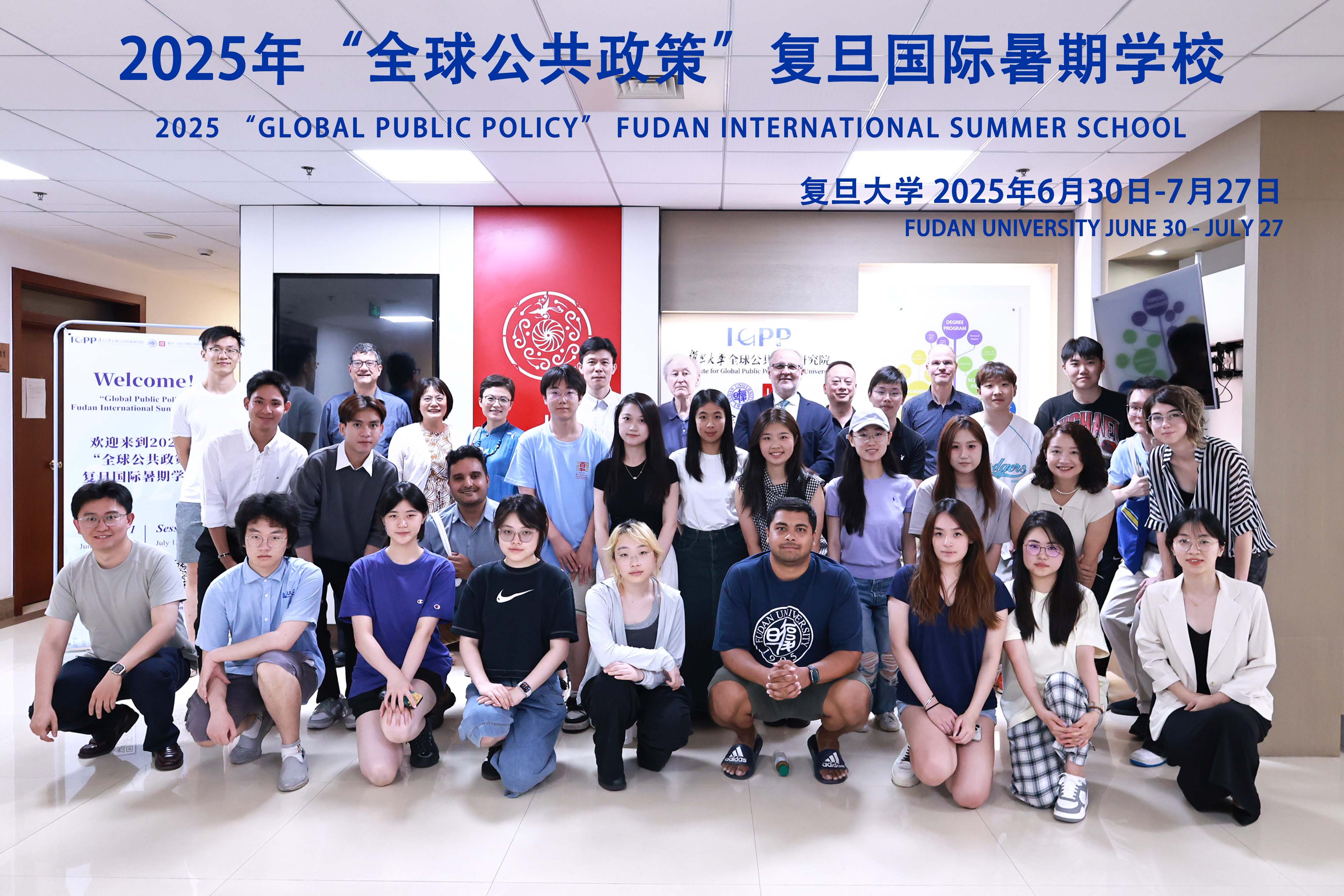
On June 30, the opening ceremony of the first session of the summer school was held at IGPP. Attendees included faculty members, IGPP representatives, and students. In his welcome address, Dean Yijia Jing of IGPP warmly greeted all participants and emphasized that as global interdependence deepens, addressing complex global challenges requires not only a thorough understanding of relevant policies and their compatibility, but also the active engagement of diverse actors from a holistic societal perspective. He reaffirmed IGPP’s commitment to advancing innovative research, exploring pressing global issues, and providing young scholars with opportunities for cross-cultural exchange and collaboration. Distinguished guests at the ceremony included Professors Bingchun Meng and Alvaro Mendez from the LSE, Professor José A. Puppim de Oliveira from FGV Brazil, Professor Søren Harnow Klausen from the University of Southern Denmark, Professor Steven Kelman from Harvard University, as well as IGPP faculty members Associate Professor Ping Jiang and Assistant Professor Yunxiong Li. The event was hosted by Assistant Professor Xin Ye of IGPP.
The first session offered five courses: Chinese Media, Global Contexts: Convergence and Conflicts, International Development and China, Ethics and Public Policy, and Chinese Digital Governance: Institutions, Policies, and Politics. Through intensive lectures, in-depth reflection, and interactive seminars, students gained a comprehensive understanding of the development and cutting-edge issues in these fields.

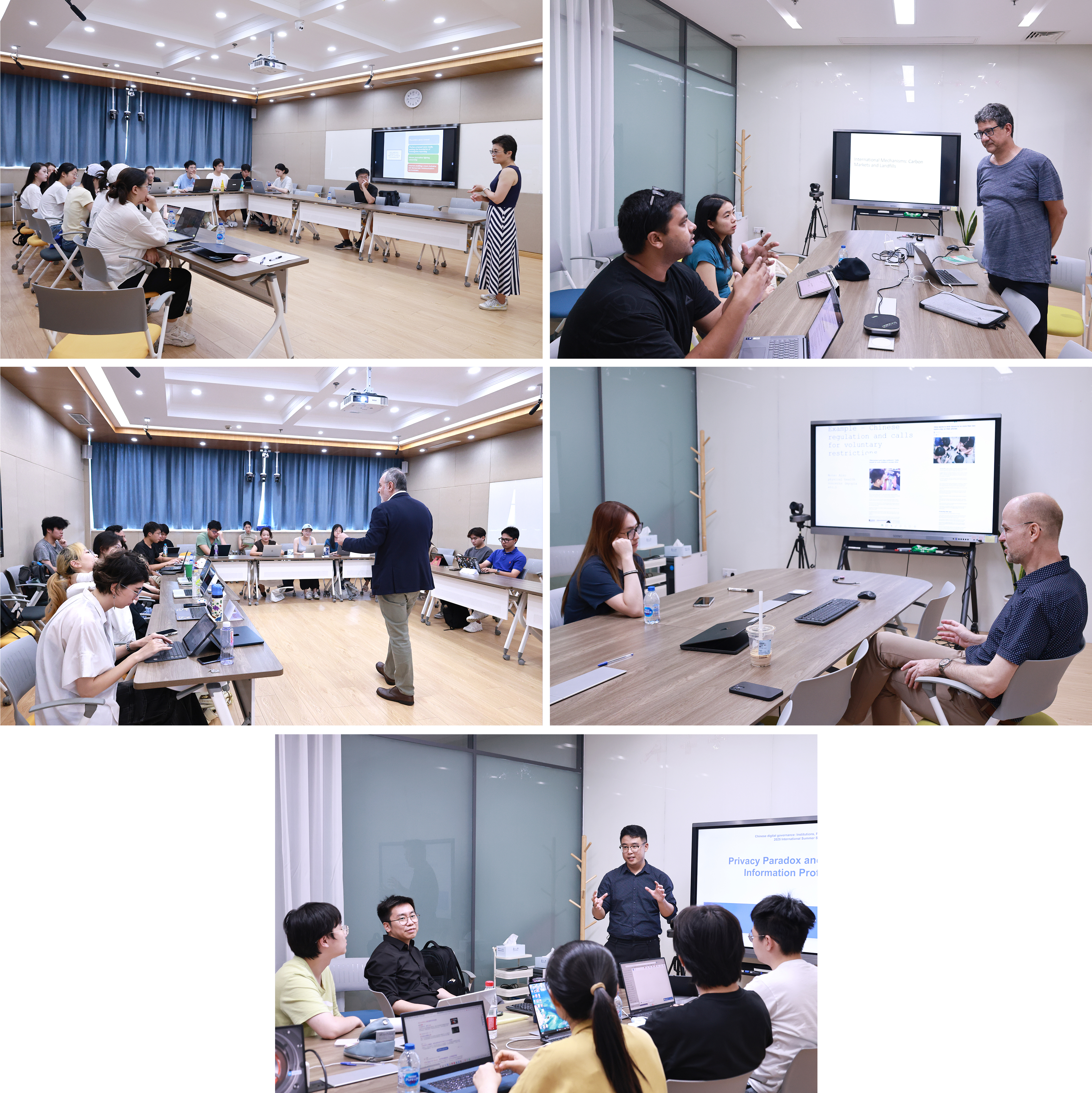
The second session of the international summer school began on July 14. The courses included Social Governance and Policy Innovation in Contemporary China by Timothy Hildebrandt, Associate Professor at the LSE; Global Technology Governance and Public Policy by Daniel Guttman, Fellow of the National Academy of Public Administration; Globalization and Development by Professor Yu Zheng from Fudan; and The Welfare State in Global and Comparative Perspectives by Professor Chunrong Liu from Fudan University.
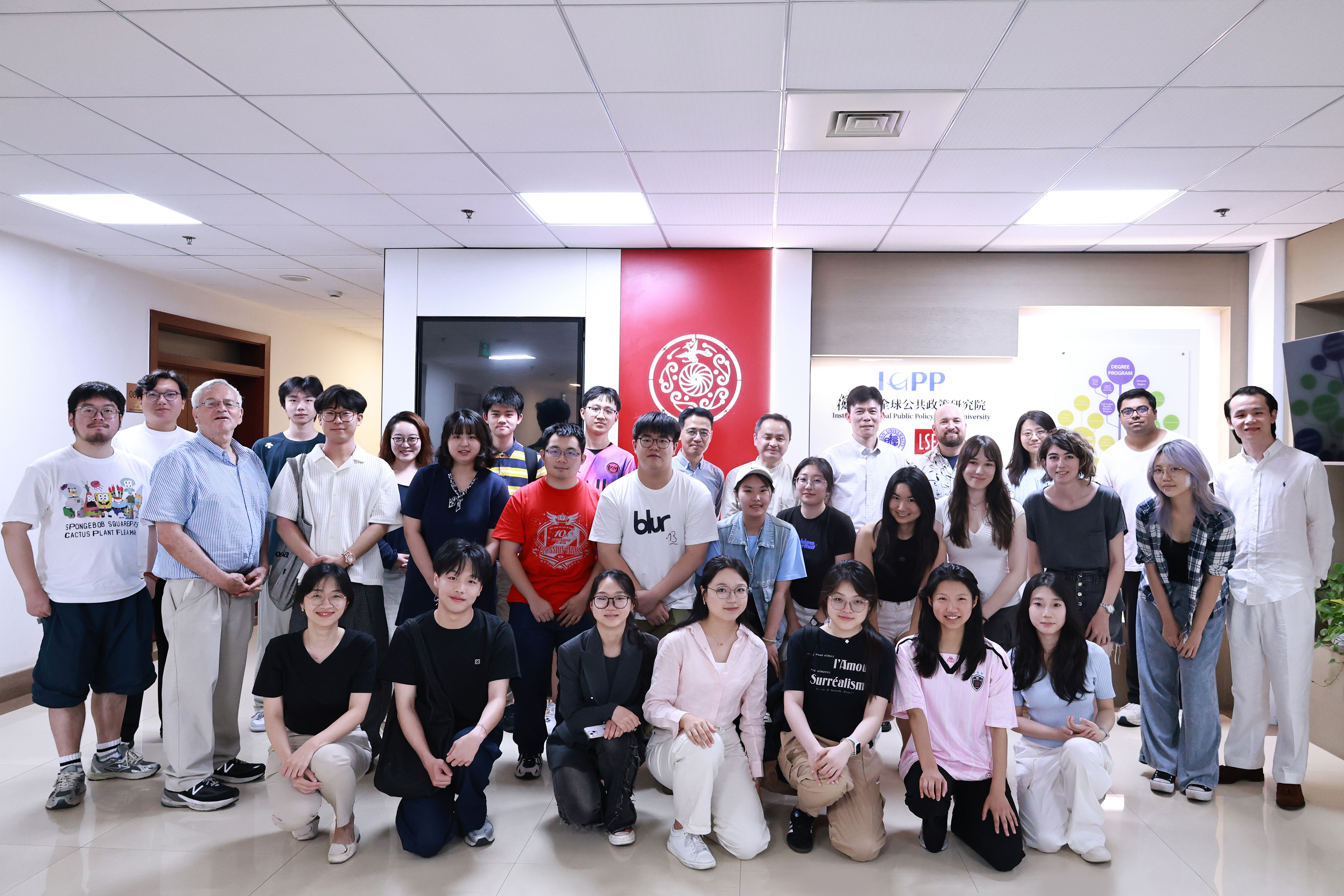

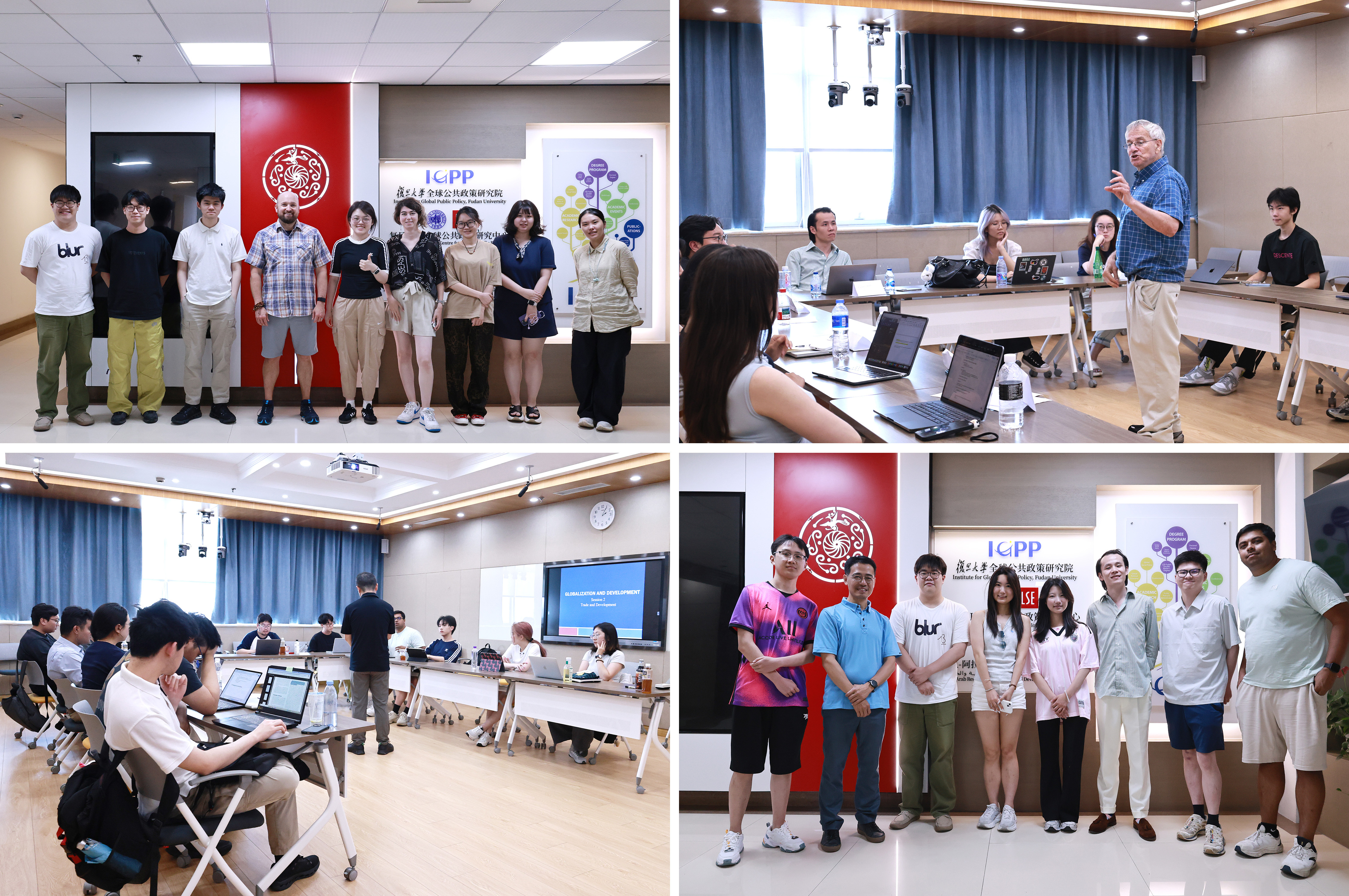
The summer school organized a series of academic events. Professor Kelman delivered a lecture titled Donald Trump and the future of the United States, exploring Trump’s political strengths and weaknesses in contemporary U.S. He analyzed how key factors such as age, gender, and education shape public support or opposition and examined Trump’s recent criticism of Harvard. Professor Mendez gave a lecture titled A Decade of Transformation: Assessing the Asian Infrastructure Investment Bank (AIIB)’s Role in Development Across the Global South. He reviewed AIIB’s evolution since its establishment in 2016, critically assessing its influences. Additionally, Professor Kelman, Professor Mendez, Professor Evan Berman from FGV, and Professor Klausen participated in University Introduction Session, presenting their institutions’ academic strengths, talent cultivation features, and program offerings, and engaging in in-depth discussions with students to answer their questions.
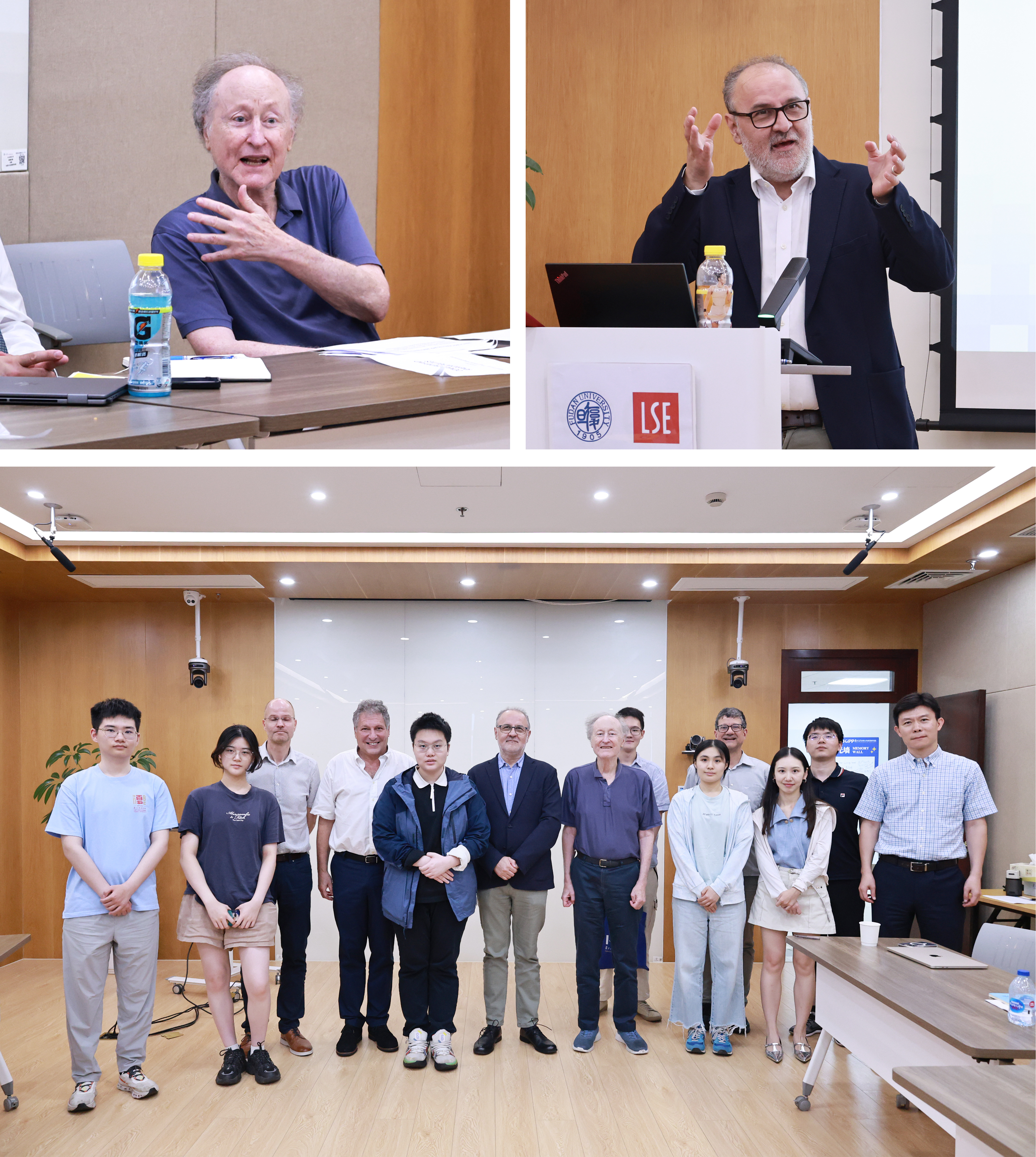
During the summer school, students had valuable opportunities to engage in face-to-face discussions with professors, exchanging research insights and practical experiences. Beyond the classroom, the program thoughtfully organized weekend activities that enabled participants to explore Shanghai’s urban landscape and savor its local cuisine. These shared academic and cultural experiences fostered close connections among participants, helping them build strong bonds and lasting friendships.
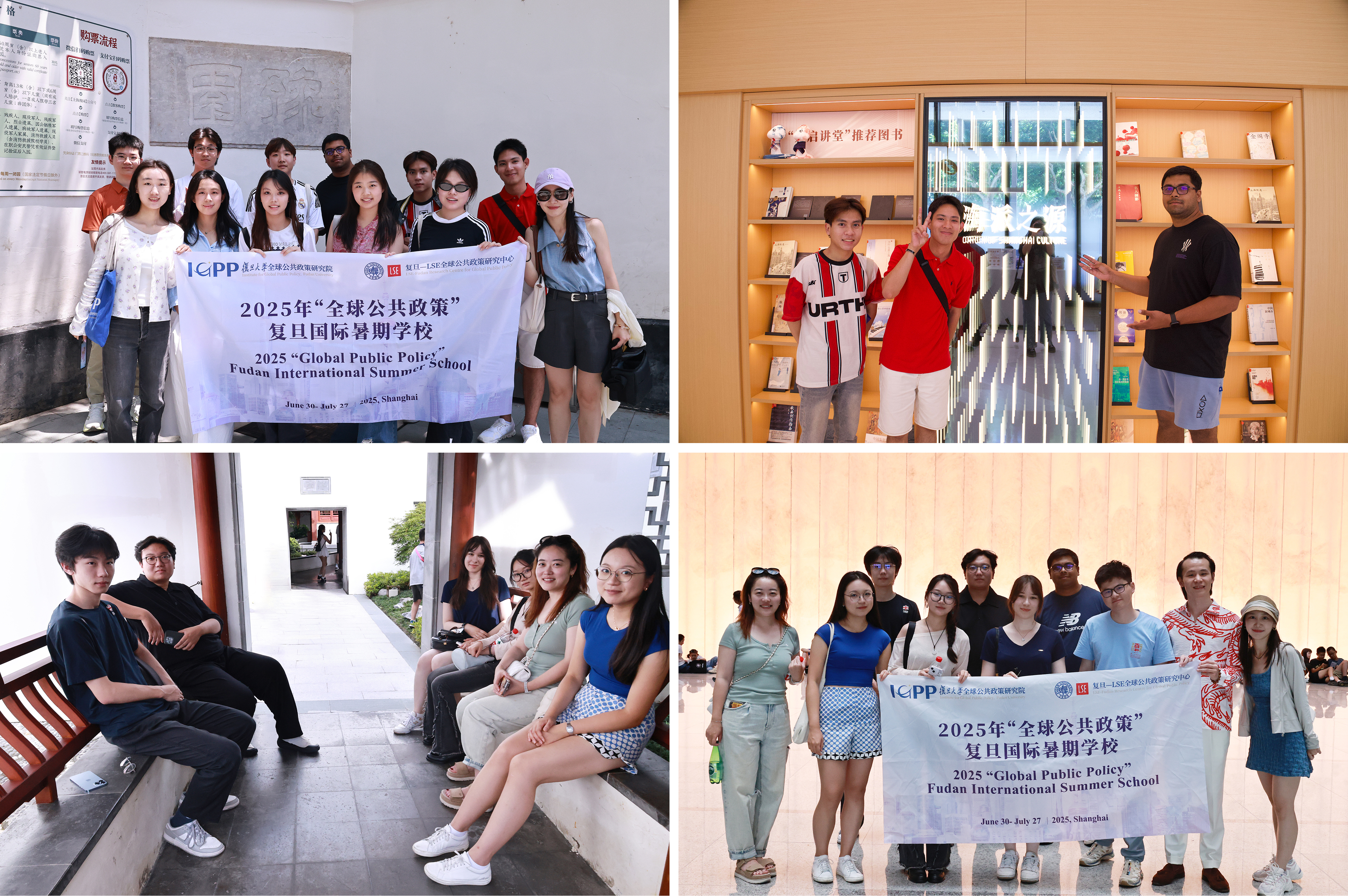
comment from students
Thanawat Thiemkreangkrai from Khon Kaen University in Thailand shared: “Through this summer school program, I’ve met friends from all over the world and gained a wealth of knowledge in public governance. For me and my fellow Thai students, this has been an invaluable opportunity. We’re so grateful to both Fudan University and our home university in Thailand. Trust me—this program will definitely bring you fresh experiences!”
Kritayot Wana, also from Khon Kaen University in Thailand, stated: “I came here to gain experience in the field of global public policy and to learn policies that can improve people’s quality of life.”
Feijie Wei from Fudan University shared: “Professor Meng’s course broadened my perspective on media studies and deepened my academic reflections. The discussions and exercises strengthened my communication skills and taught me to construct rigorous arguments while examining the interaction between law and media. I highly recommend this course for both academic and practical growth.”
Ruohan Xu from Fudan University remarked: “Professor Mendez’s course linked rapidly changing global factors to China’s development. It was eye-opening to see how events in regions like the Middle East can affect countries far away, helping us truly connect the dots.”
Min Yang, a Caixin reporter based in Singapore, shared: “At a turning point in my career, I took two summer courses—Chinese Media, Global Contexts: Convergence and Conflicts and International Development and China. Over two intensive weeks, I gained valuable insights that will strongly support my future research. I am very grateful for this opportunity.”
These voices from participants with diverse backgrounds not only affirm the effectiveness of the summer school in course design, faculty allocation, and cross-cultural exchange, but also highlight its core value as a platform for cultivating global governance talent — connecting young people worldwide with cutting-edge knowledge, fostering the collision and integration of diverse perspectives, and nurturing more inclusive thinking and actionable capacities to tackle complex global challenges.




